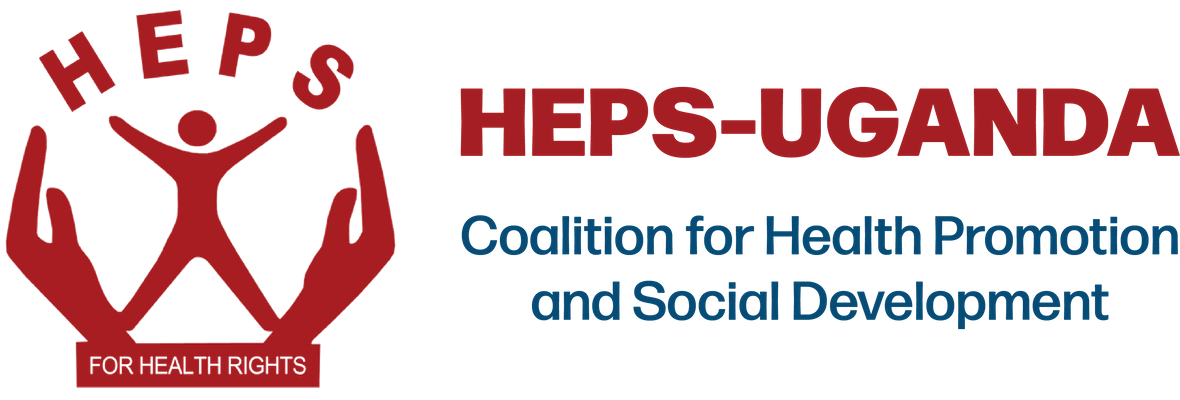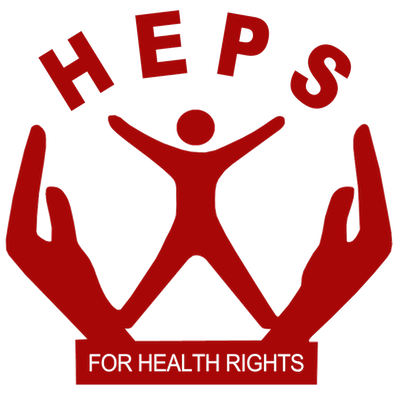Community-Led Monitoring (CLM) is back: HEPS-UGANDA@25 participated in a refresher training session for its staff to ensure the collection of high-quality and reliable data. The purpose of this training is to reinforce adherence to ethical standards and improve the accuracy of data analysis, thereby enhancing the reliability and credibility of the evidence gathered across the 12 CLM sub-regions.
Strategic Engagement Meeting on Community-Led Monitoring (CLM): HEPS-Uganda@25 participated in a Strategic Engagement Meeting on CLM, organized by the CLM Consortium (HEPS-Uganda, ICWEA, and UNAIDS), and hosted by the Ministry of Health. The meeting aimed to strengthen collaboration following the recent grant notice from the US Centers for Disease Control and Prevention (CDC). The meeting discussed strategies for activity alignment with the Ministry’s integration and service delivery priorities; service continuity for HIV/TB treatment; access to essential commodities; continued data quality improvement; and establishing a platform for joint planning and government engagement.
Our Executive Director, Kenneth Mwehonge, participated in the 10th Anniversary celebration of My Age Zimbabwe, an organization that has received sustained support from HEPS-Uganda over the years. During the event, COMPASS was honored with the Empowerment Advocate Award presented by My Age Zimbabwe in recognition of its impactful work.
A HEPS-Uganda@25 team delivered Health Management Information System (HMIS) tools for the Expanded Programme on Immunization (EPI) to Kiboga District Local Government stores and three health facilities to support the ongoing immunization campaign. The District Health Officer, District Biostatistician, and facility staff warmly received this support, recognizing it as a valuable contribution from Civil Society Organisations in enhancing data collection and reporting. They also highlighted how immunisation outreach activities have successfully reached zero-dose and underimmunized children in the underserved communities like Kapeke sub-county.
Immunisation community outreaches continue: This week, HEPS-Uganda@25 carried out an immunization outreach in Muwangi Subcounty, Kyankwanzi district, where community members received health education on the upcoming yellow fever vaccination campaign. The campaign, scheduled from September 30 to October 6, 2023, targets individuals aged 1 to 60 years. During the outreach, over 60 children were immunized and monitored for growth.
Legal and policy framework that enables HIV/AIDS response. HEPS-Uganda@25 actively participated in a stakeholder dialogue meeting focused on HIV/AIDS involving law enforcement and judicial officers. The discussions centered on establishing a supportive legal and policy framework that strengthens and facilitates the effectiveness of the national HIV response.
Community Participation in Clinical Research: HEPS-Uganda participated in the Uganda Case Research Collaboration (UCRC) Annual Community Engagement Forum at Speke Resort Munyonyo. The forum was attended by members of Community Advisory Boards (CABs) from different research sites, and HEPS-Uganda@25 attended in its capacity as civil society representative at the Kampala research site CAB of Makerere University Walter Reed Program (MUWRP), which is currently (or has previously) undertaking research in vaccines for HIV, COVID-19, Marburg, Ebola, Bilhazia and other infectious diseases. The forum was used to share experiences and good practices in community involvement in research.
From our partners,
UGANET: Lamwo District Action Centre (DAC) Committee convened a meeting of stakeholders to discuss the rampant sexual and gender-based violence (GBV) against women and children. The discussions focused on strengthening responses to reported cases of GBV and violence against children (VAC), raising awareness, and advocating for stronger protection measures for survivors. UGANET reported that, by collaborating with the DAC, a government initiative providing centralized support, including legal aid, psychosocial services, and case management, they were working to ensure survivors have access to the help they need.
Center for Health, Human Rights & Development: CEHURD participated in the two-day Amplify Fund Uganda Pooled Convening, which brought together grantee partners from across the country to reflect on experiences, celebrate achievements, and address challenges in advancing SRHR advocacy in Uganda. The convening fostered stronger partnerships and promoted the exchange of innovative approaches to respond to emerging SRHR issues. Through interactive sessions and knowledge-sharing, it provided space for reflection, capacity building, and learning, while also strengthening networks to support more coordinated and sustainable SRHR advocacy.
SRHR Alliance Uganda: SRHR Alliance partnered with Reach a Hand Uganda in Fort Portal to mark the successful conclusion of the 5-year Right Here Right Now project. Over its course, the project has created a lasting impact by empowering young people in all their diversity to claim their sexual and reproductive health and rights, while promoting gender equity and equality across all spheres of life.
From your community,
Lango: Health Minister Dr. Jane Ruth Aceng flagged off a team of 73 medical professionals from Belgium under an organisation called Together We Are Strong, to support health services in the Lango sub-region. The team, which visits Uganda every two years, will deliver both general and specialized services. They will also provide medical supplies and equipment to health facilities.
Kasese records 22 maternal deaths in one year: Kasese District is grappling with a worsening maternal and prenatal health crisis, with the past financial year marking one of the deadliest periods for expectant mothers. According to the district health authorities, 22 women died during childbirth, while 488 prenatal losses were recorded. Kasese District Health Officer, Dr Amon Bwambale, expressed deep concern over the figures, describing them as alarming and preventable in many cases.
From Uganda,
Mental health integration in schools: UNESCO convened a five-day high-level technical workshop of experts from the education, health, and psychosocial sectors to finalize the Uganda National Guidelines for Mental Health and Psychosocial Support (MHPSS) in Education. The workshop, held in Jinja, brought together experts to institutionalize mental health support in schools. The initiative aims to combat stigma and burnout among teachers and students, with proposals like a dedicated “Mental Health Hour” in school assemblies.
Uganda Urged to Strengthen Partnerships in Fight Against Cancer: Vice President Jessica Alupo calls on Ugandans to work more closely with government health institutions in the fight against cancer, emphasizing the need for stronger collaboration with the Uganda Cancer Institute and the Palliative Care Association of Uganda. Her message was delivered by Minister of State for Health Hanifa Kawooya Bangirana while officiating at a national health conference at Munyonyo, jointly organized by the Uganda Cancer Institute and the Palliative Care Association of Uganda.
WASH alliance says to build 35000 toilets across Uganda: In an effort to combat sanitation-related diseases, AMREF and Rotary Uganda have launched the AMREF Rotary Wash Alliance, an ambitious programme that aims to build 35000 toilets in vulnerable communities. The initiative, according to the alliance, will target regions such as Rwenzori, Busoga, and northern Uganda, where poor sanitation remains a leading cause of preventable illnesses.
From the region,
Africa’s Push for Health Sovereignty: At the 80th UN General Assembly, President John Mahama championed Africa’s health sovereignty, urging leaders to reduce reliance on external aid and invest in local manufacturing, pandemic preparedness, and sustainable health financing. Ghana is leading with initiatives like the National Vaccine Institute and MahamaCare, a medical trust fund for non-communicable diseases
Innovative Health Financing: Technical experts from 14 African nations met in Johannesburg to explore innovative health financing strategies. Topics included blended finance, social impact bonds, and climate-health funding to reduce out-of-pocket spending and strengthen universal health coverage. The meeting was co-organized by the World Health Organization (WHO) Regional Office for Africa (WHO-Afro) and the Global Fund.
Global health security,
Ebola: The Democratic Republic of the Congo (DRC) continues to grapple with its 16th Ebola outbreak, caused by the Zaire ebolavirus, the most lethal strain. The outbreak is centered in the Kasai Province, with the epicenters being Bulape and Mweka health zones. The latest updates indicate that 51 confirmed and probable cases, 33 deaths, 15 patients hospitalized, and two patients discharged. The country began a vaccine program against Ebola two weeks ago, starting with the most at-risk groups, including frontline health workers and close contacts of confirmed cases.






